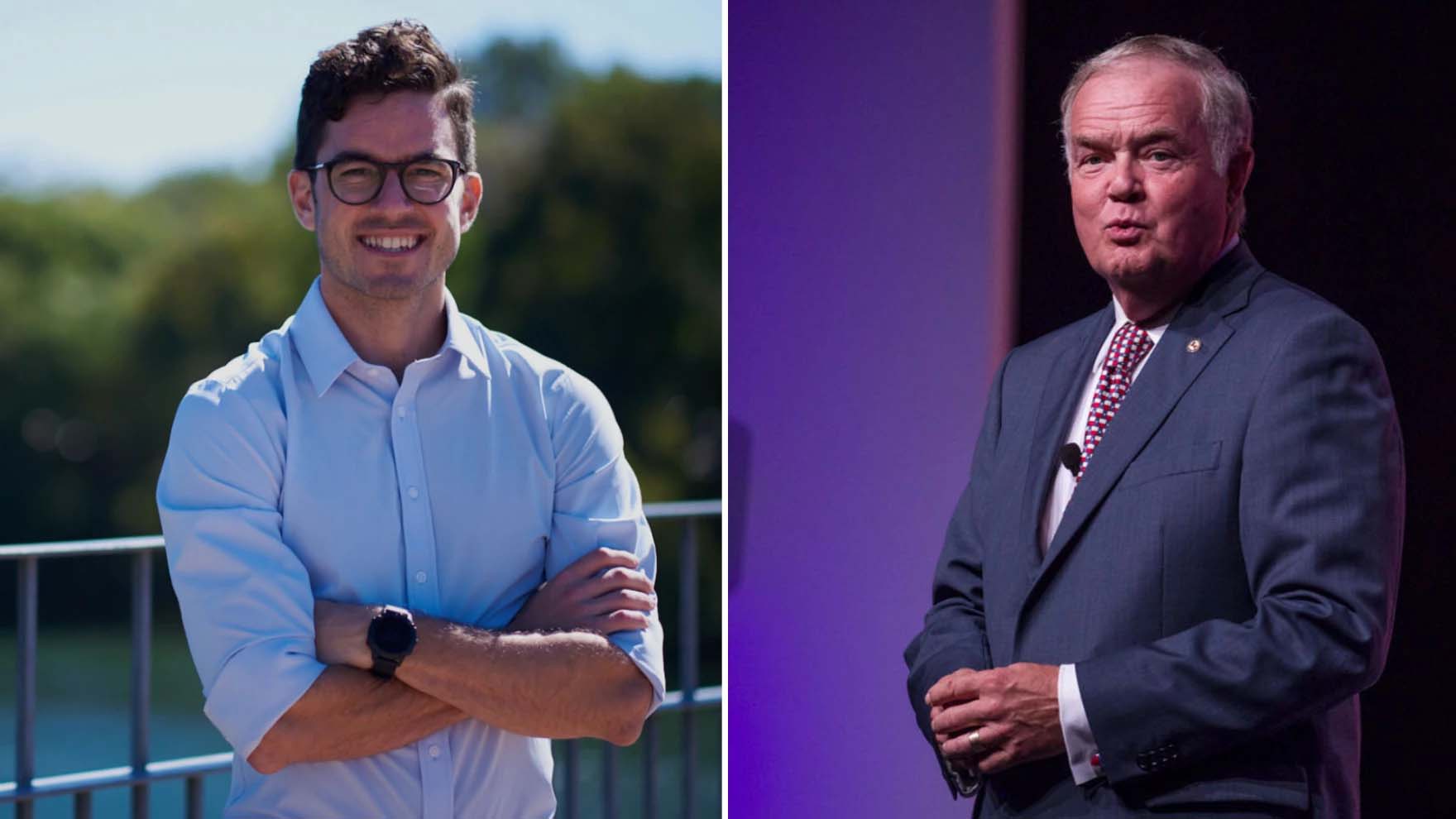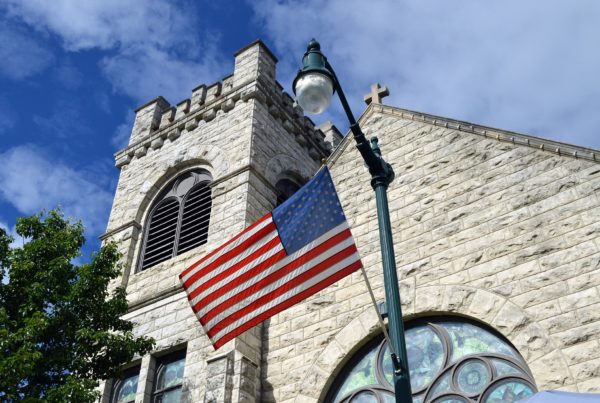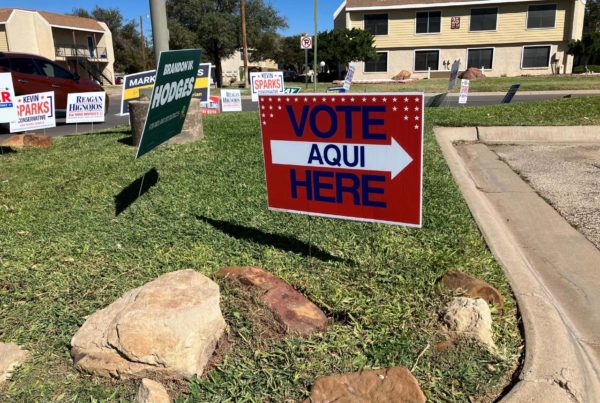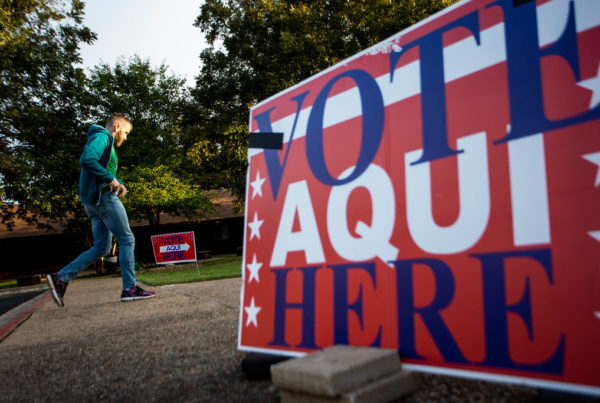From KUT:
If you were near the Mount Carmel apartments in East Austin on a recent sunny morning you might have spotted an unlikely celebrity in a little crowd gathered on the lawn.
Jane Fonda had come to talk politics.
“I feel like I’m using my platform well,” she told KUT after giving remarks to the group of residents, activists and Democratic politicians. “I kind of re-energize campaigns that are now kind of tired.”
Fonda was also there to bring money from her climate-change-focused political action committee to state political races and to whip up votes for the Democrats. There was one campaign in particular she wanted to talk about.
“I’m finding that there are these offices that wield tremendous power when it comes to the climate,” she said with a little chuckle, “like the Railroad Commission.”
Despite the old-timey-sounding name, a seat on the Railroad Commission of Texas has been called one of the most consequential climate-related offices in the country. That’s because the agency does not regulate railroads; it regulates oil and gas in the state.
The two main contenders in this year’s race for commissioner are incumbent Republican Wayne Christian and Democrat Luke Warford.
Christian is a former gospel singer turned financial adviser turned longtime Texas politician. Warford is a former business consultant and Democratic Party staffer who wants to be the first Democrat on the commission since 1994, when Mary Scott Nabers lost to Carole Keeton Rylander.
This year, he says, his party has a chance.
Luke Warford
“In a lot of ways this election cycle for this race is totally different than any that we’ve seen before,” says Warford, “because the issues are just way more in people’s faces.”
Those issues include: the Texas blackout last year (caused in large part by problems along the natural gas supply chain that the commission regulates); the role big industry donations play in Railroad Commission policy decisions; the current high price of natural gas; and the routine practice of gas flaring in the Texas oil fields, which wastes gas and pollutes the environment.
“There’s this really coherent story of regulatory capture and of special interests having total power and control here,” Warford said. Railroad commissioners “just aren’t enforcing the existing rules. And we see that across the board.”
Policy-wise, Warford supports renaming the commission so it makes sense to voters, creating a natural gas market monitor to guard against price gouging, increasing the weatherization of gas infrastructure, and reducing greenhouse gas and other emissions from Texas fossil fuel operations.
“The things I’m talking about are keeping the lights on, lowering utility prices, creating energy jobs, protecting our clean air, making sure people have clean air and clean water,” he says. “And those things just simply aren’t political.”
His opponent might beg to differ.
Wayne Christian
“The truth of it is the greatest scam in the history of our nation is this green environmentalism extremism catastrophism,” Christian said in a recent interview on a YouTube show called The Crude Truth. “I see my fellow politicians saying, ‘We’re for all of the above energy!’ That, I disagree with. I disagree that we’re for all. We’re for the good stuff!”
For Wayne Christian, “the good stuff” means fossil fuels.
Against the conclusions of researchers and the complaints of landowners, Christian says the commission is doing a good job when it comes to things like gas flaring and plugging abandoned oil wells. Against independent and government findings, he says commission regulators and industry did not mess up during the blackout.
And he thinks climate change is not real.
“The climate catastrophists have made a religion of what they do,” he said in the same YouTube interview. (Christian did not respond to KUT’s request for an interview.)
Religion is something he brings up often on the stump.
Through his years of campaigning, Christian has often urged voters to support “the only Christian on the ballot.” He says the slogan is a way to get his name out, which is especially useful when running for an obscure political office that most people don’t know much about.
But the catchphrase has struck many others as insensitive or anti-Semitic, a critique that came up in 2014 when Christian faced a primary opponent who was Jewish. Recently, Christian’s campaign said it would finally drop the slogan after being called “bigoted” by Warford, who is Jewish.
The health of the industry
Christian’s financial ties to industry have also come under fire. When he accepted a $100,000 campaign donation from a company with business before the Railroad Commission, his GOP primary opponent Sara Stogner accused him of “taking bribes.”
The incident (in which Christian denied any wrongdoing) was emblematic of a state agency whose elected commissioners are overwhelmingly funded by the industry they regulate, a practice recently documented in a series of reports from the watchdog group Commission Shift.
“There is no office that is more corrupt than the Texas Railroad Commission,” Warford says.
But for Christian, who argues that what’s good for the oil industry is good for Texas, a coziness with industry is not necessarily a bad thing.
David Prindle, a political science professor at UT Austin who wrote a book on the Railroad Commission, says that’s a position commissioners have held basically since the start of the Texas oil industry.
“They still view themselves as the managers of the Texas economy,” he says. “In order to manage the Texas economy, they want to help and nurture a healthy petroleum industry.”
So, is the oil industry healthy?
“I don’t think Wayne Christian and the current Railroad commissioners are supporting the industry as a whole,” Warford says. “I think they are doing the bidding of a very small number of oil and gas executives. The commission and how they’re enforcing the rules or not enforcing the rules is distorting the market. It’s actually undermining the market.”
It’s how voters feel about that statement, as much as issues of the blackout and global warming, that may decide the race for a seat on the Texas Railroad Commission.














